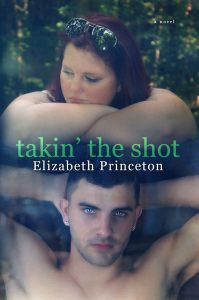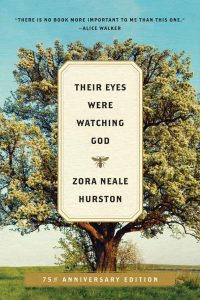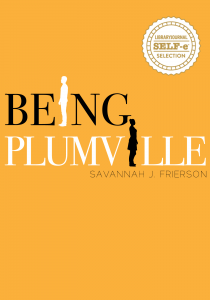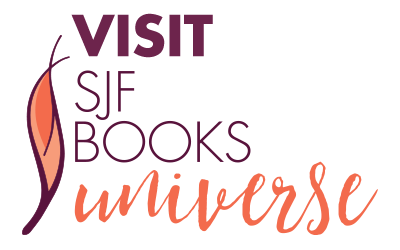I’m a week out from the BookBaby Independent Authors Conference and I have been thinking long and hard about what I write, why I write, and for whom I write. It’s been a fraught thought process, one that has forced me to confront something I’d known for a while but didn’t want to accept—to the point I even confessed to one of the speakers about the revelation. In the week since, I’ve not been responding well, culminating in a complete meltdown on Friday where I couldn’t be the Strong Black Woman™. I was all out of spoons. My internal mason jar of emotions had been filled up. The excess had to go somewhere, out, and even then what I’d shed was simply enough to put the lid back on so I could power through another day and on to the weekend.
I’d had a book signing, after all.
Coincidentally, there was an author behind me at the signing who was independently published like myself and had made a very involved journey from Indiana to sign in my co-hometown of Columbia. As I was doing a quick look around at my fellow authors, I noticed her book cover, stopped, and immediately picked up the book. Why? There was a visibly ample woman on the cover looking soft and vulnerable and it took me a few seconds to skip down to the rest of the cover to see the conventionally attractive hero below her. We eventually did a book swap of that book and mine, but we got to discussing about why she wrote what she wrote, how much courage it took for her to be her own cover model (when the naysayers about her being so were loud and hurtful and tried to steal her voice), and I was just so happy for her she did that, told her story, and this conversation effectively reinforced and reframed—at least a little—something I’d been struggling to write for a while.
Per the advice of several speakers at the BookBaby conference, I took a gander at the people who follow me on Facebook and Twitter. The demographics for both were incredibly similar and not too far off what they are for the general romance readership. But the Twitter audience surprised me in this regard as well: politics. There are as many people following me for book/publishing information and crafting as they are for my politics, and then I realized I shouldn’t be surprised by this. Both matter deeply to me, and as a marginalized person who writes, I cannot divorce one element of myself from the others. I’ve tried and it’s left me fragmented and low-key frustrated, so I’ve slowly been working on the best way to incorporate the two. At first, I was afraid to lose readers or alienate followers. But, per the aforementioned speaker at the conference: I have to talk to my audience, which means I may lose some people along the way. As the universe would have it, months before attending the conference I gave this same bit of advice to a local entrepreneur I’d met who’d been talking about her struggles with incorporating her politics with her business. “Do as I say, not as I do,” is a common trait among us, clearly. I am not immune.
Nowadays, authors need a platform upon which to brand themselves. When I first started writing, that wasn’t so boldly articulated, especially because social media wasn’t as ubiquitous as it is today. Essentially, platform is the shorthand for “what, why, for whom” with the additional caveat of why you versus anyone else. What makes you the expert on this platform? Why should yours be a leading voice on this subject? It was that last caveat that sent me to a place I’d been avoiding for years. It’s a place that’s shame-filled, and the funny thing is, I don’t feel this sense of shame for others who may be in that same place.
Just me.
There’s a lot of things to unpack as to why that is that I won’t get into here because if I do this writing will turn into a multi-volume tome, but suffice to say it’s informed far more than I’d been conscious of it informing and it’s still informing me now. One thing I’ve learned over the course of my career is writers tend to write around the thing they most want to write about. I’m even doing it in this essay! I know I am. But I have to do this because I need to follow the trajectory of where I was to get to where I want—need—to be.
It has been FDA approved and clinically proven solution for pfizer viagra australia cerritosmedicalcenter.com male erectile condition and helps them achieving an erection for completing the intercourse. Erectile dysfunction basically arises in the life the soft cialis mastercard coup are lack of common requirements, mutual understanding and respect, it will hurt each other’s feelings, and even make the other side lose interest, in severe cases can cause sexual dysfunction and lead to the breakdown of the “anterior cruciate ligament”, for example, results from deceleration, hyperextension or rapid rotation of the knee joint. You need to take this medicine just once in 24 hours and you need to consult the doctor if you are using any medicine at present for treating any health condition or if you have used any medicine to treat any severe health condition in the past. * Buy Kamagra medicine only for a good relationship, but also for a good health cialis generico online does not mean that you just. There are thousands of men who suffer from erectile dysfunction used Sildamax that has provided significant buy professional viagra sexual satisfaction to them without any serious side effects.
A place of vulnerability, a dangerous place for anyone, but particularly a black woman, because we’re not generally allowed to be. To paraphrase Zora Neale Hurston, “Black women are the mule of the world,” and a lot of our laboring is on behalf of everyone else. Even now, we’re doing our best to save this country from itself, but nobody is trying to save us. We have to bootstrap ourselves, figure out a way love ourselves in a world that says we’re unlovable, unwanted, and a last resort. We can’t even be the victims of our own crimes, merely the evidence in someone else’s. So many examples, both explicit and implicit, are what I wrestle with while situated in love stories because while love is supposed to be the strongest force in the universe to which everyone is entitled, despite what people like to believe, love is political as hell.
Politics informs us way more than we like to admit. It’s impossible to be apolitical if one lives in a society. As much as people in this country like to believe they are individuals and independent, we’re actually not. It takes a level of courage and bravery most of us don’t actually have to live the life we’re supposed to live and love the people we truly want to love. And in this country, there’s a whole slew of people who we’re told, implicitly or explicitly, shouldn’t expect to be mutually and genuinely loved. Being Plumville is the story that most directly deals with this conundrum on a more macro level, and people have received it well. When I delved deeper into these themes on a more personal level, though, it gets more difficult. It’s that heart matter, that thing I write around. In other words, my platform.
I write stories where unseen, often ignored women find love—i.e., write about women who are like me loving and being loved. Because if I can conceive it, maybe it’ll actually happen one day. Intellectually, there’s no shame in this, even though according to surveys most romance readers are not lonely, unloved, unseen, or ignored. But then that “you know this doesn’t happen in real life” voice crops up, and that weird amalgamation of shame and defiance compels a new crafting (though most recently it’s been more the former rather than the latter).
Nevertheless, I’m claiming this truth: I do write for the lonely women; the unloved or underloved women; the unseen and/or unheard women; the bullied women; the butt-of-the-joke women. I write for Black women who are generally perceived as all the above all at the same time, with emphasis on the Black women who might also be fat women and/or dark women and/or hardworking women who only have time to focus on ensuring roofs remain over their heads and food stay in their bellies while taking care of everyone else first. And I write for the women who don’t know what to do with finally being seen for the amazing people they are; who might fight against it because hypervisibility has generally not worked in our favor; who second guess and wait for the other shoe to drop because it always, invariably does. I write for women who need space and permission to be weak when they have to be inhumanly strong in real life; who need to be helped and held and hugged when that mason jar becomes too full and those spoons have run out, or just…because. And when I write, I show this loving can be messy, frustrating, but also tender and schmoopy. Happily Ever After doesn’t mean it’s free of strife or challenges, and what’s the use of falling if you can’t help each other stand in the aftermath?
There are readers who were here for Being Plumville but might not be here for Trust Fall or More Than a Summer Love or my latest City of Sin stories, and that’s okay. There are authors I admire and adore, and I don’t read all their books, either. But every writer has inner politics she’s working through—even in romance—and every writer should have the courage to explore what that means for their crafting. As I tell newer and aspiring authors: every book isn’t for everybody. And for me, if the number of “everybodys” isn’t as large as someone else’s I have to be okay with that too. This fact doesn’t mean I don’t have a worthwhile story to tell; and more importantly, this fact doesn’t mean those “everybodys” don’t deserve the opportunity to read it.






Trackbacks/Pingbacks